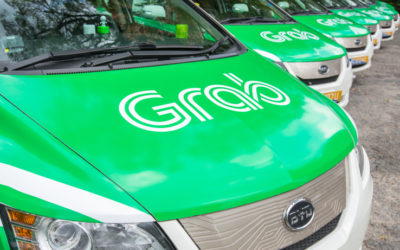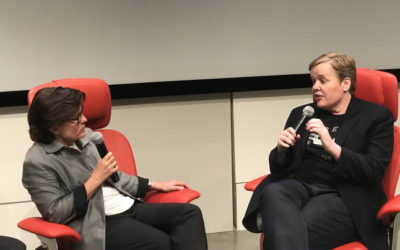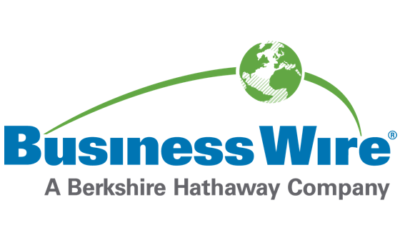YogaWorks Postpones Its IPO Plans
YogaWorks Postpones Its IPO Plans.
YogaWorks, Culver City, California, postponed its initial public offering (IPO) in July 20, several media outlets reported.
The news came 10 days after YogaWorks filed paperwork with the Securities and Exchange Commission to do an IPO.
The postponement was due to “market conditions,” a spokesperson told multiple media outlets.
“We’re in an IPO market where investors are really price sensitive and don’t want to overpay,” Kathleen Smith of IPO advisory firm Renaissance Capital told The New York Post.
When YogaWorks announced its intention to go public on July 10, it said it intended to generate $65 million by offering 5 million shares at a price range of $12 to $14, according to its IPO filing.
This would have put YogaWorks’ fully diluted market value at approximately $187 million, NASDAQ reported, with insiders indicating a purchasing interest of up to $10 million or 15 percent of the IPO shares.
Its 2016 revenue was $55.1 million, according to its IPO filing.
Founded in 1987, YogaWorks now has 50 company-owned studios in Baltimore; Boston; Los Angeles; New York; Orange County, California; San Francisco and Washington, DC..
It also has an Internet-based digital media service, MyYogaWorks.com, which is a subscription-based online library of yoga class videos, and it has its YogaWorks teacher training program.
Blue Apron is a tasty buy opportunity, say banks that led IPO
A wave of banks initiated coverage of the stock, following the typical 25 day post-IPO period that underwriters wait before publishing research, with many assigning the stock a buy rating.
Still, all of the analysts set price targets near or below Blue Apron’s issue price.
Many of the underwriters addressed skepticism they seemed sure to face from investors, with some saying Blue Apron’s valuation is now attractive given its lower price, and others discounting the threat from Amazon AMZN, +1.23% or offering counter strategies for Blue Apron.
— Stifel analysts say the threat from Amazon is “perhaps overstated” and estimate that Blue Apron will reach more than 2.6 million customers in 2021, with the average customer ordering more than 12 times a year.
Though Amazon is a “formidable competitor,” Scott Devitt, lead analyst on the report, says there is a “narrative fallacy” among analysts and others that any Amazon competitor will fail.
Stifel initiated the stock with a buy rating and $10 price target.
Mark Mahaney, lead analyst on the note, said he understands “skepticism” from investors on the stock, but Blue Apron is the leading player in the meal-kit space, according to industry checks.
If successfully executed, Mahaney said they see the potential for Blue Apron to reaccelerate growth to 30% in fiscal year 2018.
— The competitive threat from Amazon was of great concern for Barclays analysts, who initiated the stock at equal weight with a $7 price target.
Blue Apron is a “market leader” and has a large addressable market, at close to $1 trillion, but has its own issues of revenue deceleration and a high customer-acquisition costs, they wrote.
Farmers are the secret ingredient for Ghana’s most innovative startups
In the space of just a few years, Williams would go from studying space to selling beauty products sourced from the moringa, opening a new commercial opportunity for local farmers through the process.
The 98 social enterprise startups studied by the Council had created a total of 958 jobs between them (based on staff numbers in 2015), and generated a combined turnover of around 8 million Ghana cedi ($2 million).
This sector employs around half of the country’s working population, but World Bank statistics show there has been a sharp decline in the last decade of agriculture’s contribution to Ghana’s GDP, as the industry deals with challenges such as a lack of access to farming equipment, market information, and stable buyers.
Mobile agriculture Mobile technology also has a prominent role in a number of the agriculture startups, like Trotro Tractor, which has an interesting agricultural twist on the sharing economy.
“When we bring technology that solves their problems, they will buy into the technology.” While the initial startup costs were high, covering visits to farming communities throughout the country to introduce them to the service, Yakub expects Trotro Tractor’s revenue to be 10.9 million Ghana cedi ($2.5 million) by 2022.
Like many other young people in Ghana, he grew up in a farming community and witnessed his aunt struggle to farm with limited access to weather and market information.
So far, Farmerline is used by 200,000 farmers in 10 African countries.
The company says some farmers have been able to increase their revenues (pdf) by over 50% using the information service.
“They can develop their career and have the impact and opportunity to do good as well.” MoringaConnect, which Williams co-founded with fellow student Emily Cunningham, combines training, technology, and a supply chain to ship products from the moringa tree around the world.
MEST’s Ametam sees massive potential for entrepreneurial Ghanaians to change the agricultural sector into a productive, sustainable, multibillion-dollar industry, harnessing innovative technology, creating jobs, and increasing revenues for farmers.
Grab gets $2B from Didi and SoftBank to fuel bid to defeat Uber in Southeast Asia
Grab gets $2B from Didi and SoftBank to fuel bid to defeat Uber in Southeast Asia.
Grab, the ride-hailing company competing with Uber in Southeast Asia, has pulled in $2 billion of new financing from existing investors Didi Chuxing, the company that defeated Uber in China, and SoftBank.
We’re encouraged that these two visionary companies share our optimism for the future of Southeast Asia and its on-demand transportation and payments markets, and recognize that Grab is ideally positioned to capitalize on the massive market opportunities,” said Anthony Tan, group CEO and co-founder.
Essentially, both Didi and SoftBank are doubling down on the belief that Grab has what it takes to defeat Uber in Southeast Asia, the same way that Didi did in China when Uber agreed to sell its local business last August.
(Didi is an investor in Uber by virtue of the China acquisition deal.)
Grab operates in seven countries in Southeast Asia, where it claims over 50 million downloads from users and 1.1 million drivers on its platform.
Its services are primarily focused on licensed taxis and private cars, but Grab also offers motorbike taxis, shuttle bus services are carpooling in a selection of countries.
On a business-level, Uber began to see profitability in selected markets in Southeast Asia last summer, sources told us at the time, but it increased its investment in the market (and India) following its exit from China, which then-CEO Travis Kalanick revealed cost the firm $1 billion a year.
In a bid to take its business to the next level, Grab is also developing a mobile payments platform.
Sources close to Go-Jek told TechCrunch that the company raised $1.2 billion led by Tencent in May, although it did not confirm that at the time and hasn’t announced the raise.
One Family, Many Revolutions: From Black Panthers, to Silicon Valley, to Trump
One Family, Many Revolutions: From Black Panthers, to Silicon Valley, to Trump.
A few weeks later, Ben gave a talk on “How to Start a Cultural Revolution” at a Silicon Valley conference.
While no one’s politics have changed, they realized they are not quite as far apart as it might seem.
His best friend, who would later be best man at his wedding, was black.
Phil Horowitz, a believer to the end, asked his son why he wasn’t writing about the revolution instead.
Like the sons of many prominent fathers, Ben spent a long time trying both to understand and escape his father.
He could get people to work together.” At Netscape, Ben met his future business partner, Marc Andreessen.
As Ben became more successful, he eclipsed his father.
“It’s a great handicap to be talking like accountants while the opposition are making moral indictments.” Having politics so deeply part of your identity used to be unusual, said Daniel Oppenheimer, who wrote “Exit Right: The People Who Left the Left and Reshaped the American Century” about David Horowitz, Ronald Reagan and a few others.
“People say, ‘What are you doing?’” said Ben.
Graphcore’s AI chips now backed by Atomico, DeepMind’s Hassabis
Hong Kong is showing promise as a destination for tech IPOs
At the Rise event in Hong Kong this month, TechCrunch spoke to two founders who anonymously revealed that their Asia-based companies, each of which has raised more than $100 million in investment and does business worldwide, are devoting significant time towards a potential HKSE IPO in the future.
Ant Financial, the Alibaba affiliated fintech firm, has also been linked with a Hong Kong IPO.
Regulations make it difficult for companies that are still scaling their business to go public in Hong Kong since the exchange has stringent financial requirements.
“I definitely think the HKSE can be a destination for tech IPOs, but the Hong Kong government, administration and its investors all need to change their rules and ways to analyze growth potential of unprofitable internet companies,” Hans Tung, a partner with U.S.-China VC firm GGV, told TechCrunch.
“The Hong Kong Exchange is a viable listing venue for technology companies because of its liquidity and valuation,”Chua said in an email.
Another issue is that share structure factor.
An Alibaba IPO in Hong Kong would have been a game changer,” Tung explained.
Today, it is trading at $2.5 billion in market cap,” Vertex’s Chua said.
MOL Global is probably the most notable case.
In the meantime, it’ll be fascinating to see if the HKSE’s two incoming listings can convince more Asian founders to look away from the U.S. when it comes to going public.
YogaWorks IPO Can’t Get off the Mat; Debut Delayed
YogaWorks Planned to Raise $65 Million YogaWorks filed to trade on the Nasdaq under the symbol YOGA (surprise).
It would’ve been the first public yoga studio.
Great Hill intended to buy $10 million in shares and have a 70% ownership of the company.
The company gets revenue from one-month membership and paid-in-full six-month and annual membership.
The net loss for the quarter rose to $2.6 million in the first quarter 2017 from $1.5 million in 2016.
It also said in the filing that it is in late-stage negotiations to buy up to 14 more studios.
Are you a thoughtful investor looking for uncommon investment ideas?
Stirling Strategic Investor is a new source of high-quality investment ideas from seasoned investment professionals Tim Collins and Kim Khan, formerly senior members of TheStreet.com.
Tim and Kim share 50 insightful equity trade’s per year for $100.
We provide the first two ideas at Stirling Strategic Investor for free.
Dote raises $7.2 million for its mobile shopping app
Dote raises $7.2 million for its mobile shopping app.
While consumers are increasingly turning to Amazon to buy everything from home goods to electronics, a newly launched app called Dote believes there’s an opportunity to compete with the e-commerce giant’s fashion business.
There are “brands that don’t want to put their stuff on Amazon because it degrades their brand,” claims founder and CEO Lauren Farleigh.
Part of the money was secured on Apple’s “Planet of the Apps” startup show.
“When we saw the engagement and session times for Dote and heard from users, we saw that it had created the ‘shopping as entertainment’ experience on smartphones for millennial and Gen Z women,” says Jeremy Liew, a partner at Lightspeed.
“We believe that young women are the early adopters of popular culture.” Dote users download the free app, then they are asked to select their favorite brands to be notified about sales and offers.
Users are shown curated trends, though there’s also a social component where they can show friends what they’re buying.
The company takes an undisclosed share of the transaction revenue when a brand’s products sell through the app.
Farleigh says this activity helps the company build data about consumption habits and that its algorithms can “determine what you’re most likely to buy.” The company is competing in what’s become a fast-growing category.
Farleigh says Dote will use its new funding for hiring at its San Francisco headquarters, as well as to expand its retail partnerships.
10 Ways to Preserve Cash as a Bootstrapped Startup
For bootstrapped startups (meaning ones without venture capital funding) running out of runway can be a serious problem that limits the decisions leadership can make.
Reduce operating costs by working remotely.
One way to alleviate these costs is by creating a company that employs remote workers.
Make frugality a company value.
Some states have recently created tax incentives to encourage innovation.
This can be a good short-term strategy to preserve cash while attracting top talent.
When possible, hire contractors instead of full-time employees.
Master organic search to reduce CAC.
However, the lower CAC is, the easier it is to make a profit and to, therefore, invest more in attracting new customers.
During the early days of Airbnb, the company was struggling.
Uber’s SVP of leadership and strategy says she hasn’t seen any toxicity
Uber’s SVP of leadership and strategy says she hasn’t seen any toxicity.
But Frei says since joining the company, she has not seen any toxicity.
“I read the newspapers and I thought there was no chance they were going to be the good guys,” Frei said about her perception prior to joining Uber.
I found a lot of people looking for the secret memo on how to behave and if you gave them the secret memo they behaved that way.
I didn’t find toxicity.” Swisher, of course, did not let Frei off the hook, referencing things like the greyballing, geofencing Apple, tricks around regulations and the Miami letter.
“I’m ashamed because I’m now a part of the company,” Frei said.
“I share that.” But Frei then went on to talk about redemption, and how that’s her favorite trait in the world.
Finally, the next CEO will need to understand that Uber is “an organization of 15,000 people who have been through a lot.” This is absolutely an inflection point for Uber, Frei said, recognizing the company has gone through one crisis after the other.
“Honestly in part because of the spotlight that’s on [Uber].” Frei, just a couple of months into her role at Uber, sees achieving success as getting to a point where drivers love driving for the company because they want to, not because they feel like they have to, she said.
Success will be when riders feel proud to use Uber and when shareholders are proud to be involved with the company, Frei said.
Links for July 20: Why startups could start flocking to other countries, the challenge facing the future of work, and more
Links for July 20: Why startups could start flocking to other countries, the challenge facing the future of work, and more.
The future economy can create wealth, but what about work?
As businesses become more like Blackstone and less like General Motors, the economy will generate more and more wealth—and, many worry, less work.
We argue that declining competition is partly responsible for this phenomenon.
Within manufacturing, we show that industry leaders invest and innovate more in response to exogenous changes in Chinese competition.
How land inequality increased productivity: Evidence from the French Revolution — Noel D. Johnson et al. Bad federal policy could be sending US startups abroad — Wired Politicians like to talk about small businesses being the lifeblood of the American economy.
But the truth is that it’s not small businesses but young businesses that are creating the most jobs.
It’s little wonder, then, that as the United States keeps these entrepreneurs in legal limbo, other countries, from France to Chile, are all too eager to take them in.
That bill died in the House of Representatives, but America’s neighbors up north took notice, piloting their own startup visa program that very year.
So far, 60 startups have launched in Canada using this visa.
YogaWorks IPO pulled on valuation concerns, not market conditions
YogaWorks IPO pulled on valuation concerns, not market conditions.
Warner Bros/Courtesy Everett Collection YogaWorks Inc. said Thursday that it was postponing its initial public offering citing “market conditions” through a spokesperson, but it’s not the market that is holding it back.
In fact, the IPO market is very healthy, with the second quarter marking its strongest three-month period in two years, according to a report from PricewaterhouseCoopers.
If the yoga studio chain had priced at the midpoint of its $12 to $14 range, it would have commanded a public market capitalization of $187 million.
Blue Apron became the worst-performing large IPO so far this year on July 18, when shares hit a record low some 36% below the issue price, according to Renaissance Capital.
On a smaller scale, software company Tintri Inc. slashed its price range twice to eventually price at $7 a share, giving it a market capitalization of $215 million, below its reported private valuation of $785 million.
SNAP, -0.20% which went public with a $19.7 billion market capitalization, above its last private valuation of $17.8 billion.
In comparison, food gene-editing company Calyxt Inc. CLXT, +18.21% which also has yet to turn a profit, made its market debut Thursday after slashing its valuation and saw its shares soar 12%.
Don’t miss: Investors’ worst fears about Blue Apron may be coming true as Amazon moves to meal kits The company, founded in 1987, would be the first yoga studio to go public in the U.S. and a test of whether Wall Street appreciates boutique fitness offerings as much as private-equity investors, which have been scooping up gyms.
It had a net loss of $9.4 million in 2016, wider than the $9.2 million loss recorded in 2015.
ZTO Sued Over ‘Untrue Statements’ in Biggest U.S. IPO in 2016
ZTO Sued Over ‘Untrue Statements’ in Biggest U.S. IPO in 2016.
Lawsuit was filed by retirement plan for Birmingham, Alabama City says ZTO inflated margins by omitting some business ZTO Express Inc., the Chinese delivery service that had the biggest U.S. initial public offering in 2016, was sued by an investor for allegedly inflating profit margins to exceed industry peers and lure investors. “By keeping the ‘network partners’ businesses off its own books, the company was able to exaggerate its profit margins to investors,” the retirement plan said in the complaint.
The suit also names Morgan Stanley and Goldman Sachs Group Inc., which led the Oct. 26 offering that raised $1.4 billion.
ZTO’s American depository shares are down about 20 percent from its IPO price of $19.50.
“We believe the claims are without merit and intend to defend ourselves vigorously,” she said in an email.
The press offices of Morgan Stanley and Goldman Sachs didn’t immediately respond to requests for comment.
The retirement plan said it relied on that statement and others by ZTO to make its investment, only to see the share price fall.
Individual defendants in the complaint include ZTO Chief Executive Officer Meisong Lai, Chief Financial Officer Jianmin “James” Guo, and board directors Jianfa Lai, Jilei Wang, Xiangliang Hu, Baixi Lan, Xing Liu, Zhen Wei.
— With assistance by Alex Barinka
Calyxt stock rises as it become Minnesota’s newest public company
The developer of agricultural gene-editing technology for food producers priced its initial public offering Wednesday evening after the stock market closed.
Calyxt priced 7 million shares at $8 per share and raised about $56 million.
Previous documents indicated the company would offer 6,060,606 shares.
The company started trading under the stock symbol CLXT when the market opened Thursday.
Shares of Calyxt priced at $8 per share and rose quickly to $10.41 per share in midday trading Thursday.
To mark the new offering Federico Tripodi, CEO of Calyxt, rang the opening bell at the Nasdaq exchange.
The company’s gene editing technology for agriculture, TALEN (Transcription Activator- Like Effector Nucleases), was developed at the University of Minnesota.
The company will use $25 million of the offering’s proceeds for research and development of Calyxt’s initial products including a high fiber wheat, a herbicide tolerant wheat variety and additional products.
This is the second Minnesota-based company to complete an initial public offering this year.
ASV shares are currently trading at $7.94 per share.
An unprofitable yoga chain is the latest failed IPO
An unprofitable yoga chain is the latest failed IPO.
Lululemon Athletica/Flickr This one didn’t even make it to market.
YogaWorks, a chain of 50 studios spread across six US metropolitan areas, pulled its initial public offering on Thursday, the day it was originally expected to price, citing market conditions.
The offering’s underwriters — led by Cowen, Stephens and Guggenheim — set a range of $10 to $12 a share in a regulatory filing on July 10.
A pricing at the top of the range would’ve marked a valuation of roughly $70 million.
It’s certainly an interesting rationale for pulling the deal, considering multiple US equity benchmarks closed at record highs on Wednesday.
Not to mention the CBOE Volatility Index — or VIX — which serves as a gauge for investor fear, is locked near its lowest levels on record.
While some might cite a difficult IPO environment that most recently saw meal kit maker Blue Apron limp to the finish line, it’s also possible potential investors just weren’t sold on the company at that valuation.
After all, the company is unprofitable at the moment, posting net losses in each of the last two years, as well as in the first quarter of 2017.
Blue Apron is also not the best basis for comparison, because its severely dented IPO price and subsequent weak trading was spurred by Amazon encroaching on its competitive territory through its blockbuster acquisition of Whole Foods.
Eric Mathews of Start Co on Building a Diverse Founder Ecosystem
Eric Mathews of Start Co on Building a Diverse Founder Ecosystem.
Eric Mathews is the CEO of Start Co, a venture development organization in Memphis, is an icon in the city and is dedicated to this long haul of building his community.
I am a champion for community and entrepreneurial change and have been working to build the startup ecosystem in Memphis for over a decade.
Can you tell us a little more about what Start Co. does?
Finally, we provide post-acceleration support for growing startups.
Four startups from our most recent cohort have raised over $1 million in funding.
Overall, Start Co.’s graduate companies have enabled over 250 jobs to be created in our community.
Over the following five years, that model can be scaled, and the final five years are the harvest time, when founders have exits and become the next generation of mentors and investors.
Recognizing the value of Start Co.’s action-oriented entrepreneurial training, the city partnered with us to launch Propel, a 12-week accelerator program focused on minority owned businesses.
The city is funding the initiative, and Start Co. is running it.
Kala Pharmaceuticals Announces Pricing of Initial Public Offering
Kala Pharmaceuticals Announces Pricing of Initial Public Offering.
WALTHAM, Mass.–(BUSINESS WIRE)–Kala Pharmaceuticals, Inc. (Kala), a biopharmaceutical company focused on the development and commercialization of two Phase 3 product candidates, KPI-121 1.0% for the treatment of inflammation and pain following ocular surgery and KPI-121 0.25% for the temporary relief of the signs and symptoms of dry eye disease using its proprietary mucus-penetrating particle (MPP) technology, announced that is has priced its initial public offering of 6,000,000 shares of its common stock at a public offering price of $15.00 per share, for aggregate gross proceeds of approximately $90,000,000 before underwriting discounts, commissions and estimated offering expenses.
All of the shares are being sold by Kala.
The common stock is expected to begin trading on The NASDAQ Global Select Market on July 20, 2017 under the trading symbol “KALA.”
The offering is expected to close on July 25, 2017, subject to customary closing conditions.
J.P. Morgan, BofA Merrill Lynch and Wells Fargo Securities are acting as joint bookrunners for the offering.
A registration statement relating to the shares of common stock being sold in this offering has been filed with the U.S. Securities and Exchange Commission and was declared effective on July 19, 2017.
The offering of these shares is being made only by means of a prospectus forming part of the effective registration statement relating to these shares.
This press release shall not constitute an offer to sell or the solicitation of an offer to buy, nor shall there be any sale of shares of Kala’s common stock in any jurisdiction in which such offer, solicitation or sale would be unlawful prior to the registration or qualification under the securities laws of such jurisdiction.
About Kala Pharmaceuticals, Inc. Kala is a biopharmaceutical company focused on the development and commercialization of therapeutics using its proprietary MPP technology, with an initial focus on the treatment of eye diseases.
















